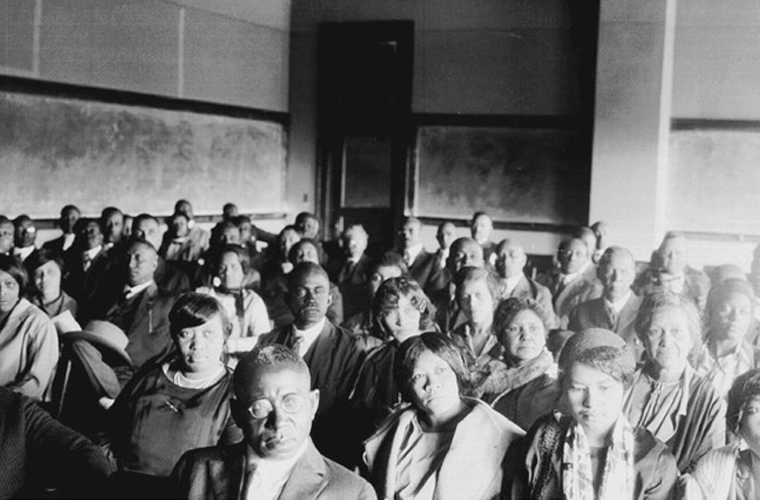The Jeanes Supervisors were a group of African American teachers who worked in southern rural schools and communities in the United States between 1908 and 1968. Also known as Jeanes Teachers, Supervising Industrial Teachers, or Jeanes Workers, they derived their name from Philadelphia philanthropist Anna T. Jeanes, who provided funding for black education in the South. Approximately 2,300 Jeanes Supervisors worked in 16 southern states, including Alabama. Almost all of the roughly 295 people who eventually taught in each of Alabama’s 67 counties were women.
In 1907, philanthropist Anna T. Jeanes created an endowment fund of $1 million. The fund was intended to assist the community, county, and rural schools for African Americans in the southern United States. Jeanes named Booker T. Washington and Hollis Burke Frissell to head up the fund and directed them to appoint a board of trustees to manage it. The fund was called the Negro Rural School Fund, or Jeanes Fund
 Other northern philanthropists, such as John D. Rockefeller, also created funds for southern education during this period, but the Jeanes Fund was the first to target rural African American children in the South exclusively. Alabama Jeanes Supervisors’ salaries were at first paid primarily by the Jeanes Fund. This limited the number of Alabama Jeanes supervisors, as the Jeanes Fund was designed to pay only a portion of the supervisors’ salaries. As word of the Jeanes Supervisors’ work spread in Alabama, county superintendents recommended that their boards of education pay a portion of the salaries, often amounting to half. By 1914, 19 Alabama counties paid a portion. In 1929, the Alabama State Department of Education began to support the Jeanes Supervisors and funded fully the salaries of 12 supervisors. By 1930, Alabama Jeanes Supervisors received funds from philanthropic sources, including the Jeanes Fund ($9,290), county school funds ($15,333), and state funds ($20,180).
Other northern philanthropists, such as John D. Rockefeller, also created funds for southern education during this period, but the Jeanes Fund was the first to target rural African American children in the South exclusively. Alabama Jeanes Supervisors’ salaries were at first paid primarily by the Jeanes Fund. This limited the number of Alabama Jeanes supervisors, as the Jeanes Fund was designed to pay only a portion of the supervisors’ salaries. As word of the Jeanes Supervisors’ work spread in Alabama, county superintendents recommended that their boards of education pay a portion of the salaries, often amounting to half. By 1914, 19 Alabama counties paid a portion. In 1929, the Alabama State Department of Education began to support the Jeanes Supervisors and funded fully the salaries of 12 supervisors. By 1930, Alabama Jeanes Supervisors received funds from philanthropic sources, including the Jeanes Fund ($9,290), county school funds ($15,333), and state funds ($20,180).
